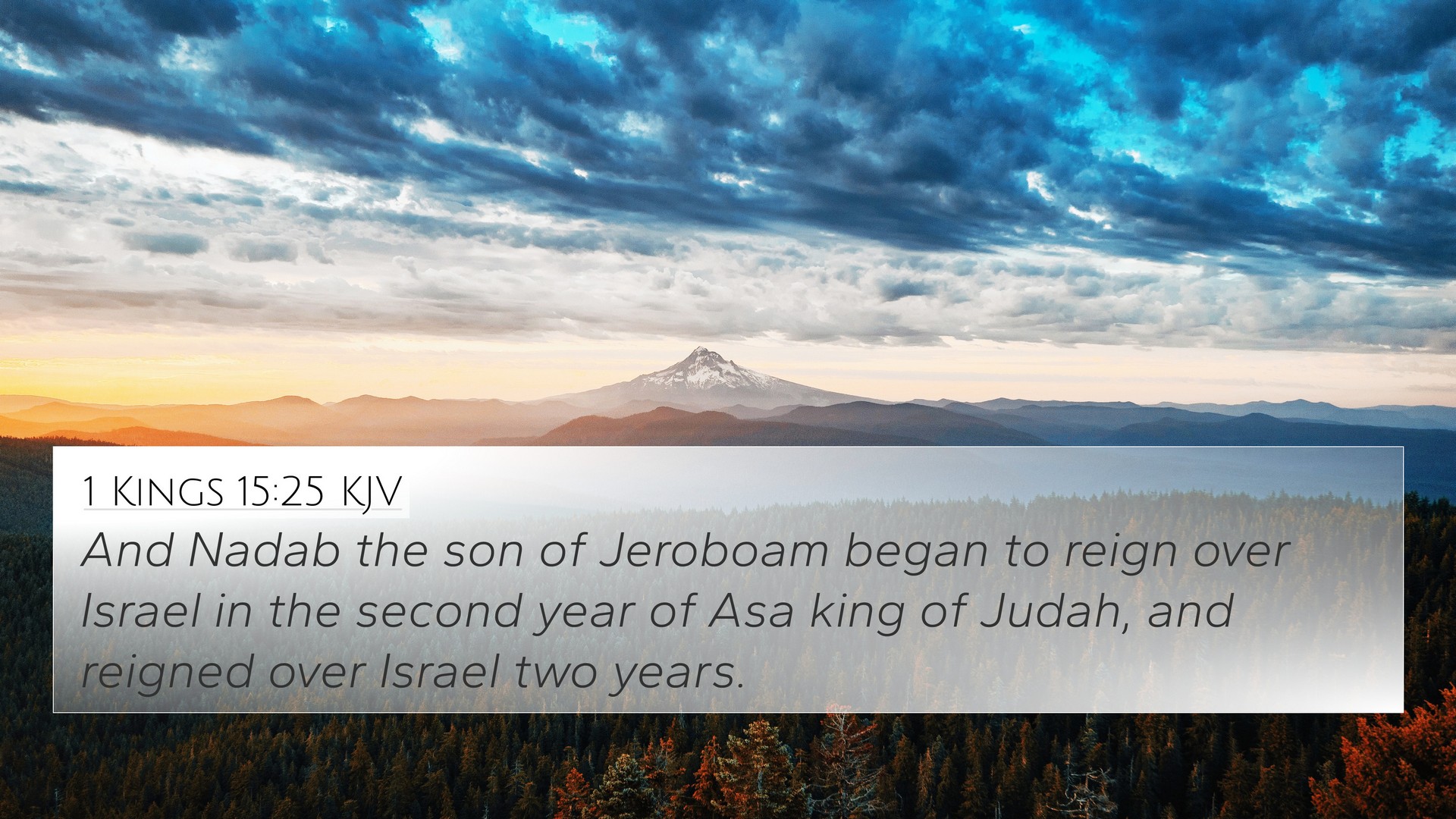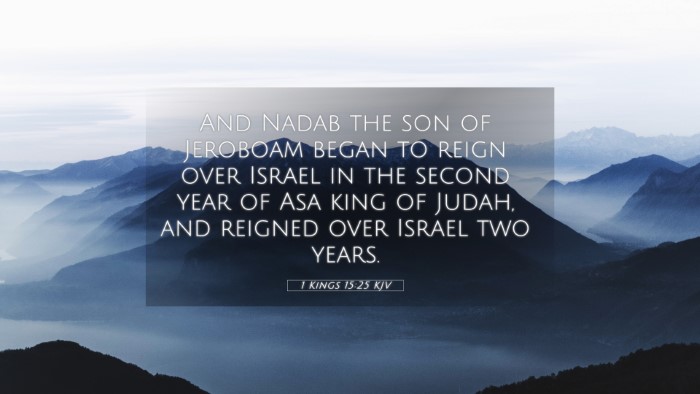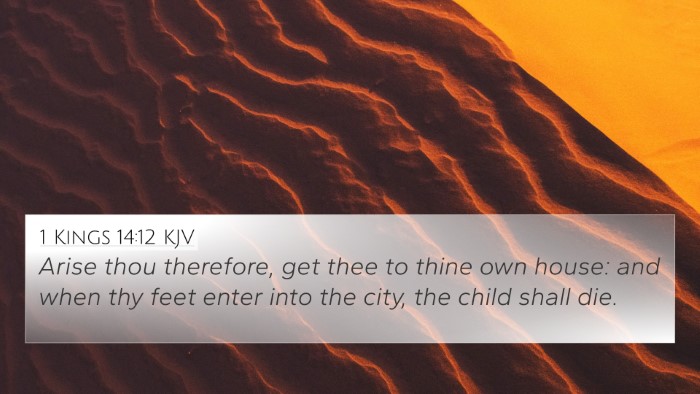Understanding 1 Kings 15:25
Verse: "And Nadab the son of Jeroboam began to reign over Israel in the second year of Asa king of Judah, and reigned over Israel two years." (1 Kings 15:25 KJV)
Contextual Overview
This verse marks the beginning of Nadab's reign as king of Israel, the Northern Kingdom, during a specific period noted in relation to the kings of Judah. As recorded, his reign was notably short, lasting just two years. Understanding the implications of his reign requires delving into both historical context and spiritual significance.
Insights from Public Domain Commentaries
Matthew Henry's Commentary:
- Nadab is characterized as the son of Jeroboam, indicating a continuation of his father's legacy, which was marked by rebellion against God.
- The brevity of his reign is significant, suggesting the instability in Israel's leadership and the consequences of going against God's commandments.
- Henry highlights how this reign exemplified the fulfillment of judgment on Jeroboam’s house due to idolatry.
Albert Barnes' Notes:
- Barnes emphasizes the political turmoil during this period and the implications of Asa’s reign in Judah as a contrast to Nadab’s poor leadership.
- He notes the fulfillment of prophecy regarding Jeroboam’s descendants, highlighting the divine judgment on those who turn their backs on God.
- Barnes connects this narrative with the broader theme of God's sovereignty over Israel's kings, pointing out the importance of righteous leadership.
Adam Clarke's Commentary:
- Clarke examines Nadab's influence over Israel, suggesting that his reign reflects the state of moral and spiritual decline in the nation.
- He also notes the succession plan in Jeroboam's family, underscoring the family's fall from grace due to unfaithfulness to God.
- Clarke adds a plea for the importance of faithful leaders in connecting the people to God, indicating that Nadab failed in this respect.
Thematic Bible Verse Connections
1 Kings 15:25 can be closely examined through the lens of several other scriptures, demonstrating the interconnectedness of Biblical narratives.
- 1 Kings 14:10-11: This prophecy foretold the punishment of Jeroboam's household, which shaped the context of Nadab's short reign.
- 2 Kings 15:8-10: The commentary on the rule of other kings illustrates a repeated cycle of evil leadership in Israel.
- 1 Kings 12:28-30: Jeroboam's establishment of idolatry sets the stage for Nadab's rule and the continuing rebellion against God.
- Deuteronomy 17:14-20: This passage outlines the expectations for kings in Israel, contrasting sharply with Nadab's failings.
- 1 Chronicles 3:10: A genealogical record that ties Nadab to Jeroboam, stressing the importance of lineage and faithfulness.
- Amos 7:9: This verse reflects the judgment against the house of Jeroboam, echoing the themes of inevitability in divine judgment.
- Matthew 1:12: The genealogy of Jesus references the line of David, serving as a stark reminder of the consequences faced by those who forsake God.
- Galatians 6:7: "For whatsoever a man soweth, that shall he also reap," aligning with the consequences of Nadab’s and Jeroboam’s actions.
- Hebrews 9:27: This concept affirms that all must face judgment, pertinent to the legacy of Nadab’s short-lived reign.
Conclusion
In summary, 1 Kings 15:25 serves as a pivotal point in understanding the spiritual and political dynamics of ancient Israel. The brief reign of Nadab stands as a cautionary tale of the effects of idolatry and unfaithfulness, drawing connections between past leaders and the overarching narrative of God's judgment and mercy.




